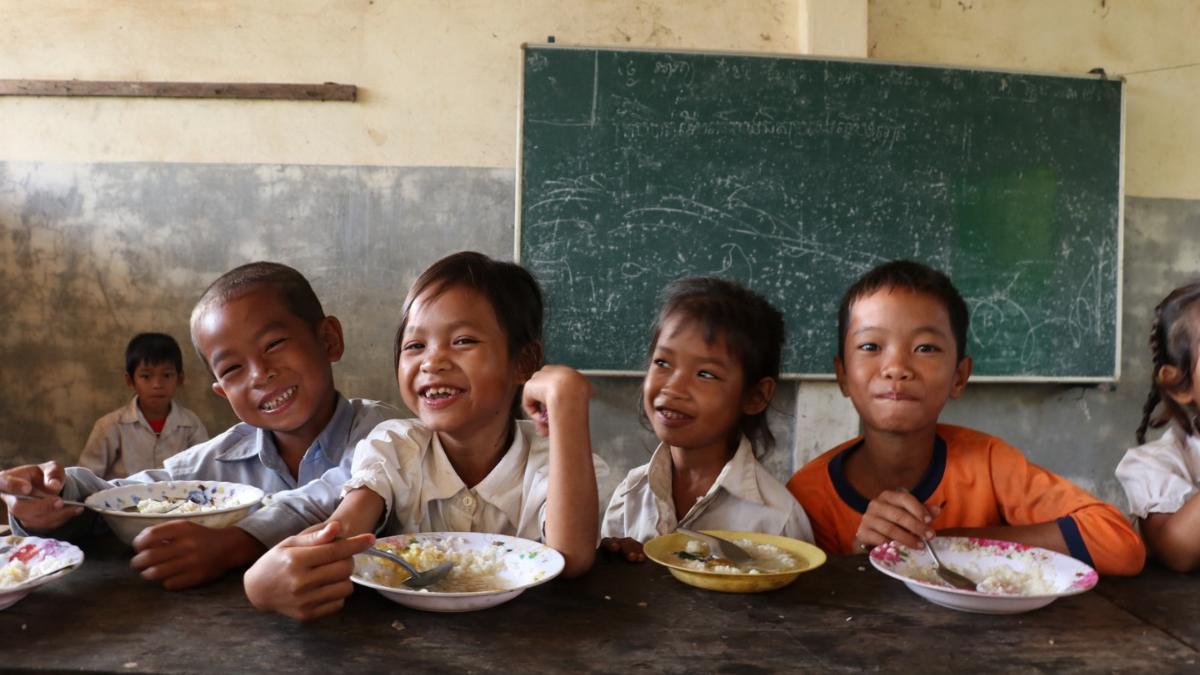UNESCO released the report “Education and Nutrition: Learn to Eat Well” during the ‘Nutrition for Growth’ event hosted by France on March 27-28, 2025. The report highlights concerns regarding the nutritional quality of school meals worldwide and urges governments to improve food standards in schools.
Current Global Context
As of 2024, approximately 47% of primary school pupils worldwide received school meals. However, UNESCO’s findings indicate that many of these meals lack adequate nutrition. The organization stresses that improving the quality of school meals is crucial for reducing child undernourishment and enhancing academic performance. Studies suggest that nutritious meals can increase school enrolment and attendance rates.
Key Findings of the UNESCO Report
- Lack of Nutritional Oversight: In 2022, about 27% of school meals were not designed with input from nutritionists.
- Limited Food Legislation: Out of 187 countries evaluated, only 93 had legislation governing school food policies.
- Inadequate Food Standards: Merely 65% of these countries had specific standards for food sold in school cafeterias and vending machines.
Health Implications
- Rising Childhood Obesity: Since 1990, childhood obesity rates have more than doubled.
- Persistent Food Insecurity: Despite rising obesity levels, millions of children still lack access to nutritious meals.
- Need for Fresh & Locally Sourced Food: UNESCO argues that schools should promote healthy eating habits by prioritizing fresh, locally sourced food and reducing reliance on ultra-processed foods.
Successful Initiatives Worldwide
Several countries have implemented successful school meal programs to address these concerns:
- Brazil: The National School Feeding Programme has restricted ultra-processed foods, ensuring a healthier diet for students.
- China: The addition of dairy and vegetables in school meals has improved nutrient intake, especially in rural areas.
- Nigeria: The Home-Grown School Feeding Programme led to a 20% increase in primary school enrolment.
- India: The introduction of fortified organic pearl millet in Maharashtra has significantly enhanced cognitive function in adolescents.
Recommendations and Future Actions
UNESCO’s Key Recommendations
- Prioritize Fresh Produce: Governments must increase the inclusion of fresh fruits, vegetables, and whole grains in school meals.
- Reduce Sugary & Processed Foods: Schools should limit sugary drinks and ultra-processed foods to combat obesity.
- Integrate Food Education: Nutritional education should be incorporated into school curricula to teach students about healthy eating habits.
Planned Actions by UNESCO
- Developing Practical Tools: UNESCO will create resources and guidelines to help governments improve meal quality.
- Training Programs: The organization plans to train policymakers and school administrators in implementing effective school nutrition policies.
Summary of the news
| Category | Details |
|---|---|
| Why in News? | UNESCO released the report “Education and Nutrition: Learn to Eat Well” during the ‘Nutrition for Growth’ event in France on March 27-28, 2025. The report highlights concerns about the nutritional quality of school meals worldwide. |
| Current Global Context | – As of 2024, 47% of primary school pupils received school meals. – Many meals lack proper nutrition, affecting child health and academic performance. – Nutritious meals can boost school enrolment and attendance rates. |
| Key Findings | – Lack of Nutritional Oversight: In 2022, 27% of school meals were prepared without nutritionist input. – Limited Food Legislation: Only 93 out of 187 countries have school food policies. – Inadequate Food Standards: Only 65% of these countries set food standards for school cafeterias and vending machines. |
| Health Implications | – Rising Childhood Obesity: Since 1990, obesity rates have more than doubled. – Persistent Food Insecurity: Millions of children still lack access to nutritious meals. – Need for Fresh & Locally Sourced Food: Schools should reduce ultra-processed foods and promote fresh, local food. |
| Successful Initiatives Worldwide | – Brazil: The National School Feeding Programme restricts ultra-processed foods. – China: Added dairy and vegetables to school meals, improving nutrition. – Nigeria: Home-Grown School Feeding Programme led to a 20% rise in enrolment. – India: Fortified organic pearl millet in Maharashtra improved cognitive function in adolescents. |
| UNESCO’s Key Recommendations | – Prioritize Fresh Produce: Increase fruits, vegetables, and whole grains in school meals. – Reduce Sugary & Processed Foods: Limit sugary drinks and ultra-processed foods. – Integrate Food Education: Teach students about healthy eating habits. |
| Planned Actions by UNESCO | – Develop Practical Tools: Create guidelines for improving meal quality. – Training Programs: Train policymakers and school administrators in implementing effective school nutrition policies. |



 India’s Passport Climbs 10 Ranks in 2026...
India’s Passport Climbs 10 Ranks in 2026...
 NITI Aayog Releases Sixth Edition of “Tr...
NITI Aayog Releases Sixth Edition of “Tr...
 AI@Work: Driving Productivity, Jobs, and...
AI@Work: Driving Productivity, Jobs, and...








